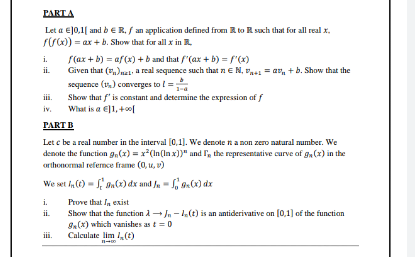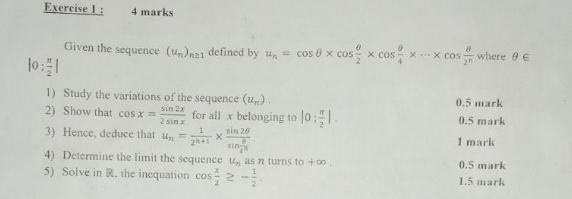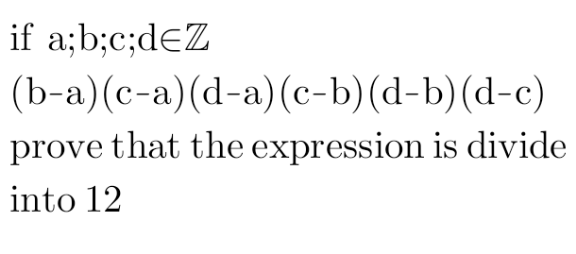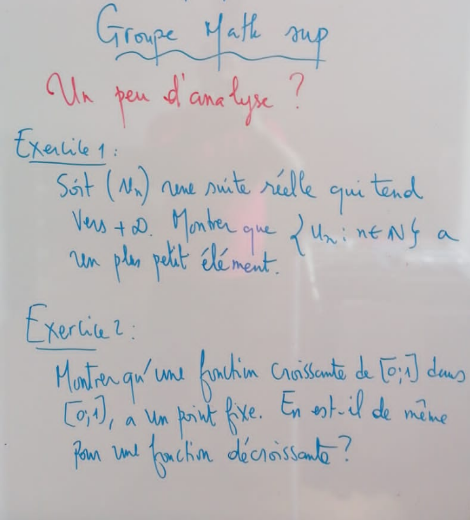
Question and Answers Forum
AllQuestion and Answers: Page 616

Im{f'(z)} = 6x(2y-1) and f(0) = 3 - 2i, f(1) = 6 - 5i. Find f(2 + i)












Pg 611 Pg 612 Pg 613 Pg 614 Pg 615 Pg 616 Pg 617 Pg 618 Pg 619 Pg 620
|
Question and Answers Forum |
AllQuestion and Answers: Page 616 |
| y = ((a/b))^x ∙ ((b/x))^a ∙ ((x/a))^b ⇒ y^′ = ? |
| if a;b;c>0 and a+b+c=1 find min((1/a) + (9/b) + ((25)/c)) = ? a)73 b)75 c)105 d)81 e)83 |

|
| Im{f'(z)} = 6x(2y-1) and f(0) = 3 - 2i, f(1) = 6 - 5i. Find f(2 + i) |
Im{f'(z)} = 6x(2y-1) and f(0) = 3 - 2i, f(1) = 6 - 5i. Find f(2 + i) |

|

|
| Find the solution of : {_(x^2 +3xy+2y^2 −4 = 0) ^(2x^2 −2xy−3y^2 +7 = 0) Please show your working... |

|
| log_(2021) (√(x : (√(x : (√(x :..)))))) = 674 find x=? |
| x;y;z>0 and x^2 +y^2 +z^2 =3 prove that xyz ≤ (((x + y + z - 1)/2))^2 ≤ 1 |
| ∫_( 0) ^( ∞) ((ln(1+a^2 x^2 ))/(1+b^2 x^2 )) dx = ? |
| ∫_( 0) ^( ∞) ((arctan(x))/(x(x^2 +x+1))) dx = ? |
| e^x + y = x^2 y^2 find the expression for (dy/dx) |

|
| ∫_0 ^( ∞) (( sin^( 2) (x ))/(x(√x))) dx=^? (√π) |

|
| For matris solution: { ((2x - 3y = 8)),((x + 5y = - 9)) :} |

|

|

|

|
| (R−r)^2 + R^2 = (R + r)^2 ⇔ R^2 + r^2 −2rR + R^2 = R^2 + r^2 +2rR ⇒ R^2 = 4rR ⇒ r = (R/4) = 1cm A_S = πr^2 = π×1cm^2 = πcm^2 |

|

|

|
| x;y∈N ((18^((x^2 + y^2 )/2) )/9^(xy) ) = 2592 ⇒ find xy=? |
Pg 611 Pg 612 Pg 613 Pg 614 Pg 615 Pg 616 Pg 617 Pg 618 Pg 619 Pg 620 |